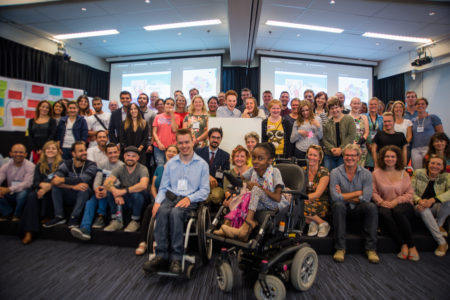
Project Meeting in Utrecht September 2018
“Nothing about us, without us” calls for a meaningful participation of people with disabilities in matters that directly relate to them and can influence their lives for more social, educational and labour market inclusion. Improving policies and programmes for the full inclusion of young people with disability can ensure that they can develop capacities and fully participate in society in a later stage of their life.
The EPR network strives to promote the meaningful involvement of youth with disabilities in society and in the framework of this project, young people with disabilities directly contributed to the policy making process, whilst developing competences and skills to participate fully in society. Different stakeholders – primarily youths with disability, but also experts, service providers and decision makers from different countries, met to identify and coproduce policy recommendations because they believe that by working together, they can make a more positive impact on the lives of young people with disabilities by achieving the objectives listed below.
The project’s report can be read here.
The Manifesto can be read here.
The roadmaps to implement the manifesto can be read here.
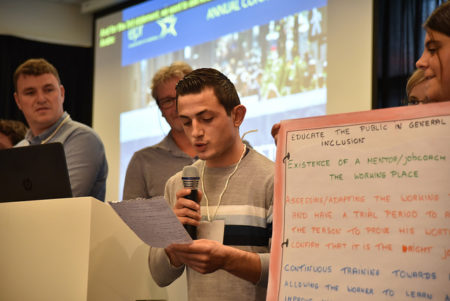 >> PROJECT OBJECTIVES
>> PROJECT OBJECTIVES
– To enhance dialogue opportunities and contact between learners with disabilities and policy makers
– To reduce the gap between policy-making processes and the needs/opinions of youth with disabilities
– To promote participation in the democratic life of young people with disabilities;
– To co-produce recommendations on involving young people with disabilities in policy making;
– To raise awareness about relevant EU policies – Europe 2020 strategy, Education and Training 2020, European Youth Strategy, European Disability Strategy 2010 -2020, European Pillar of Social Rights
– To co-produce concrete policy recommendations on inclusion that can be easily shared and disseminated and feed into the development of the new Youth Strategy and beyond; ensuring that youth issues are taken into account in cross-sector policy initiatives
– To develop intercultural and social skills among young pwd
– To promote peer-learning and intercultural learning, through non-formal learning,
– To promote the mobility of young people with disability
– To identify good practices supporting inclusion and involvement in democratic life among service providers
– To enable continuity of other EU funded activities
– To enhance Inclusion and Diversity in the Erasmus+ funded activities
Fundacion INTRAS, one of the partners in the project, made a video with one of its delegates! Watch the video here:
Democracia participativa (Utrech, septiembre 2018) from Fundacion INTRAS on Vimeo.
>> Euro Youth Mental Health Director speaks about the workshop and interviews one of the other participants.
>>The roadmaps for the implementation of the project in the different countries:
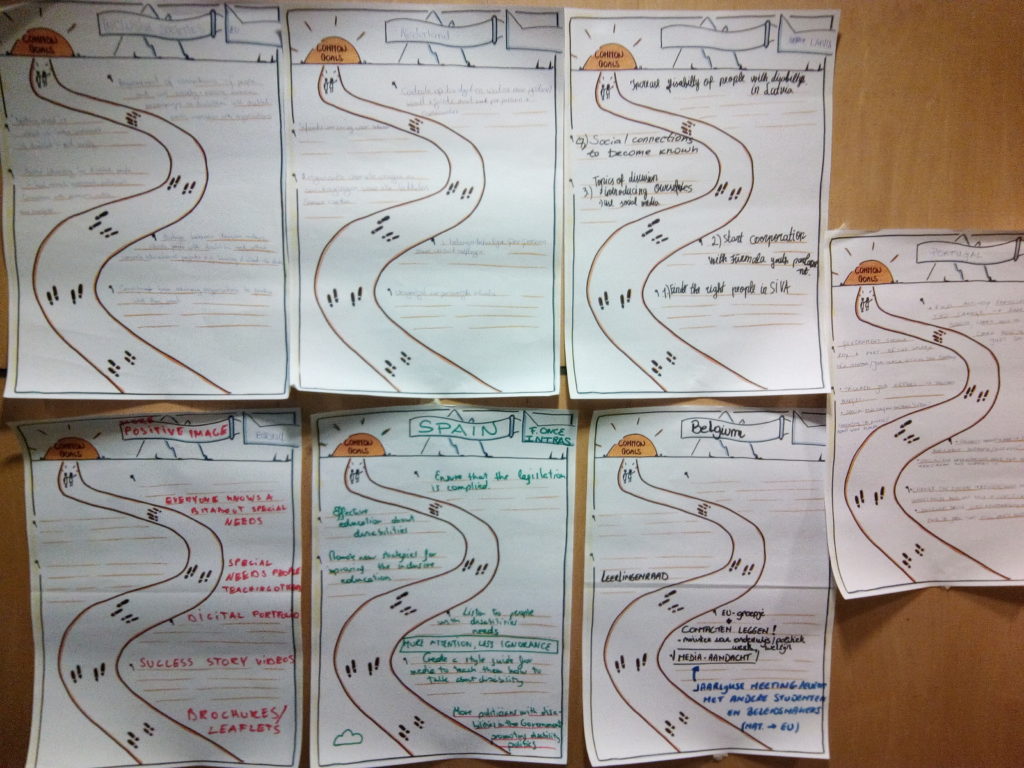
Project Dissemination & Follow-Up
Astangu Vocational Rehabilitation Centre, Estonia
On 20 February 2019, Joel Pahkla of Astangu handed over the Manifesto to Monika Haukanõmm and Maris Laur, members of the Parliament Social Affairs Committee, and to Kaia Iva, Estonian Minister of Social Affairs.
The Manifesto contains suggestions for greater involvement of young people with special needs in society and for improving their living environment. Upon the transfer of the Manifesto, Joel spoke about his experiences as a person with special needs in society. Both the members of the Social Affairs Committee and Minister of Social Affairs listened to Joel with great interest and considered it important that young people themselves wrote their own concerns and made proposals.
For Joel, it was the first time he was able to sit down with politicians and discuss the topics that are important for him. As Joel stated, “the right information reached the right people and I am very proud!”
Fundación ONCE, Spain
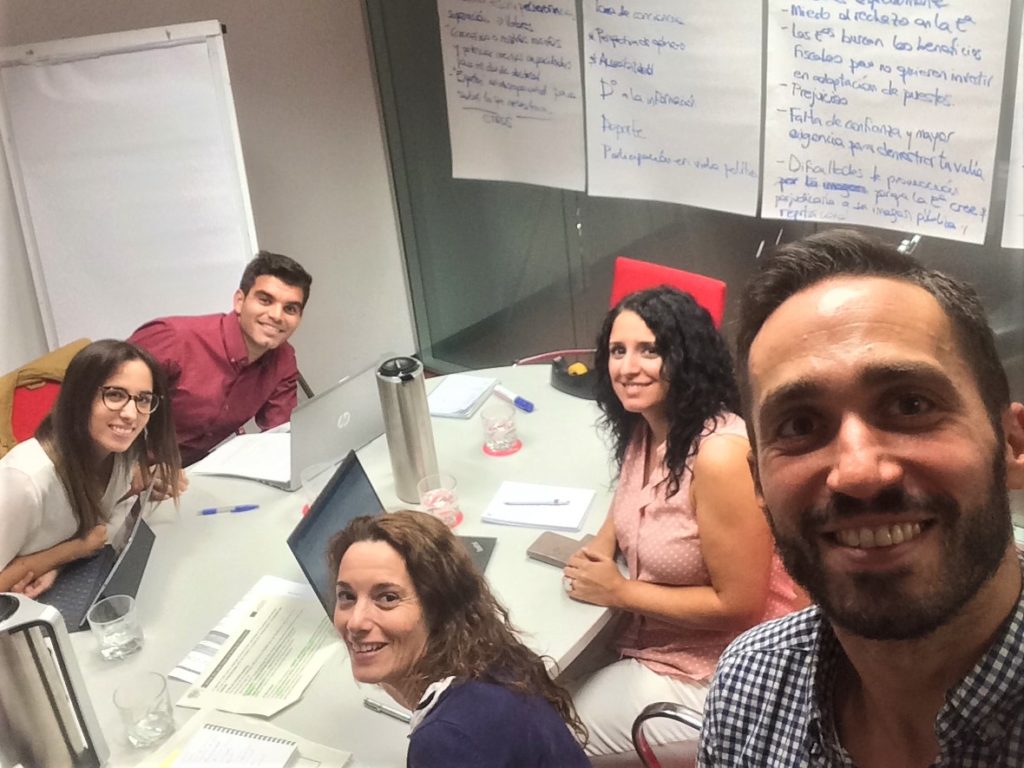
The EPR KA3 Project “The future you(th) want: co-producing recommendations for inclusive societies” has been a unique experience for the participants. The project provided the youth ambassadors with an opportunity to speak up for themselves, to share their opinions, to exchange ideas with youth from other countries, to learn from one another, to contribute to a Manifesto and to be able to present it publicly to an international audience of service providers, policy makers and experts in disability. The experience was highly enriching and empowering for them.
The project was also a great opportunity for the Annual Conference participants (EPR members, experts and policy makers) to directly listen to young persons with disabilities and learn from them as experts by experience.
For the ONCE Foundation, as an organization whose higher Governing Body is comprised by the main Spanish Disability Organizations and is managed by persons with disabilities themselves, these kind of projects, where direct outcomes from persons with disabilities are collected, are highly appreciated. As well, Youth Programs are currently one of the main strategy lines not only for the ONCE Foundation, but also for the European Commission. In this sense, the ONCE Foundation operates as an intermediate body for the ESF Operational Programme for the implementation of the Youth Employment Initiative (YEI), so the outcomes of this project are valuable and are already contributing to feed the design of future programs.
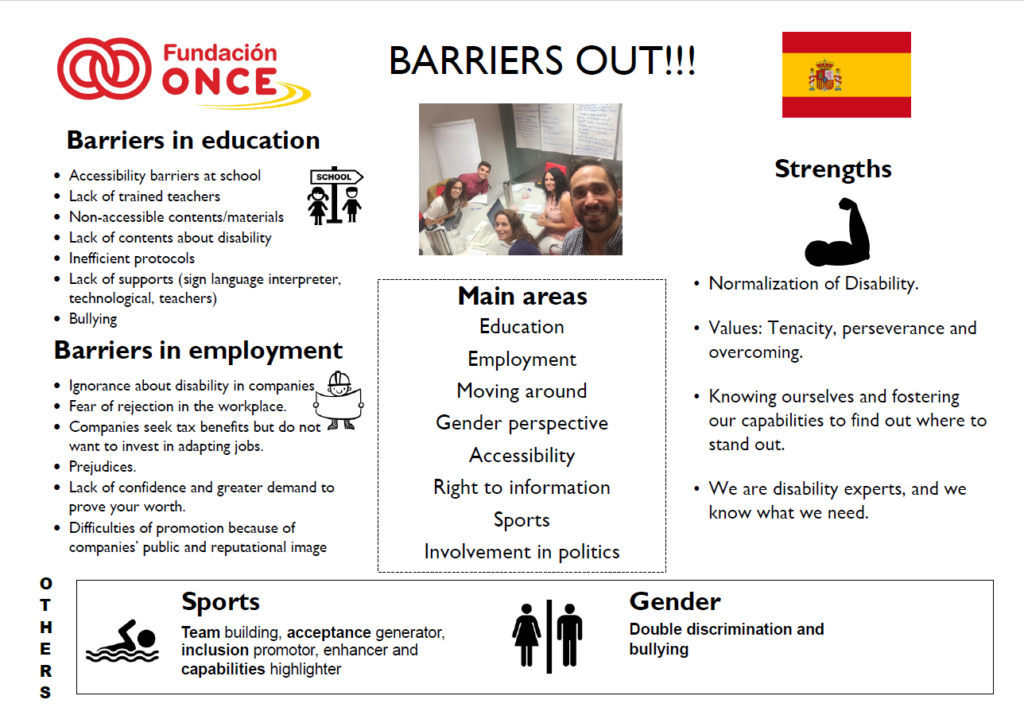
GTB Flanders vzw, Belgium
GTB Flanders vzw disseminated the project in a few ways. Following the Utrecht conference, a group of young people came together to make the roadmap more concrete. The Manifesto and roadmap were discussed by the Flemish steering group, ‘transition from education to employment’. GTB-VDAB and the Flemish department of education were involved in this steering group, and the partners were pleased to see the implementation of the ‘nothing about us without us’ concept.
The youth also expressed their willingness to have a dialogue with Flemish politicians. As such, GTB wrote a letter addressed to all political leaders of the democratic parties in the Flemish parliament asking for a dialogue.
During the last Flemish quarter of 2018, GTB held a follow-up event to attract a wider audience regarding the project’s follow-up. Youth councils from the Flemish region participated, mainly targeting Flemish policymakers and service providers.
As well, the group of young people also came together in October 2018 to further define their success criteria in the product development of tools which aim to produce a fluid transition from school into the labour market or into further education. The results of the Structured Dialogues were presented during the ESF project meeting, Start To Can (STC). All partners were able to gather relevant information regarding effective support programs based on the personal experience of their motivation for self-management. Ultimately, the STC steering group decided that the group of young people will be the first thinktank for user design of STC products. Since U-Lapland is a partner of this project, they similarly did the same exercise, outlining success criteria for STC tools with the assistance of young people.
Additionally, during the last Flemish quarter of 2018, GTB held its 10th anniversary across ten different cities across Belgium. Young ambassadors from Belgium were invited to present the Manifesto, recommendations and roadmap.
On 3 and 4 February 2019 in Madrid, the project results were also presented during the ESF Talentoscoop project meeting. Talentoscoop has developed a new service design to reinforce employer cooperation with service providers for job integration of people who are distanced from the labour market. This must also complement and include the needs of young people. One main concern is young people falling through the cracks when it comes to rehabilitation and job integration. This concern has urged a more holistic concept of job coaching that is inclusive of the needs and contexts of young people. A new Erasmus project may arise as a result.
GTB – Manifest europese jongeren met een beperking aangepast
GTB – Werkgroep onderwijs Verslag
Centro de Reabilitação Profissional de Gaia (CPRG), Portugal
The discussion of how youth policies should be shaped and implemented in Europe is one of the fundamental grounds in which we must invest if we wish to work towards inclusion. Following the actions that took place in Utrecht (September 2018), CRPG and its ambassadors developed a national event to disseminate results and shape future actions. It took place on 14 December 2018 and was named Dialogues on the Future – Journey of Critical Thinking and Proposition on policies and strategies for inclusion. Four main activities were carried out:
- Presentation of the outputs of phases 2 and 3 of the project (Manifesto and Roadmap);
- Working session Thinking about the present and building the future – joint reflection on national policies for inclusion;
- Working session What is the contribution of CRPG for building the necessary future? – reflection and joint proposal on the contribution of CRPG to inclusion; and,
- Co-production of the Roadmap CRPG on the Route of the Future.
The reflections carried out were then collected in two outputs which mirror the products developed in Utrecht and advocate changes both in CRPG’s institutional context (1) and in Portugal’s national context (2).
- Roadmap CRPG on the Route of the Future: Co-produced by CRPG clients, it proposes several actions for implementation in the strategic planning of the institution.
- Manifesto for Inclusion: Statement of intentions, recommendations and good practices promoting a more inclusive Portuguese society and addressed to disability-related organizations and decision makers, it is a reference for inclusion in the scope of national policies.
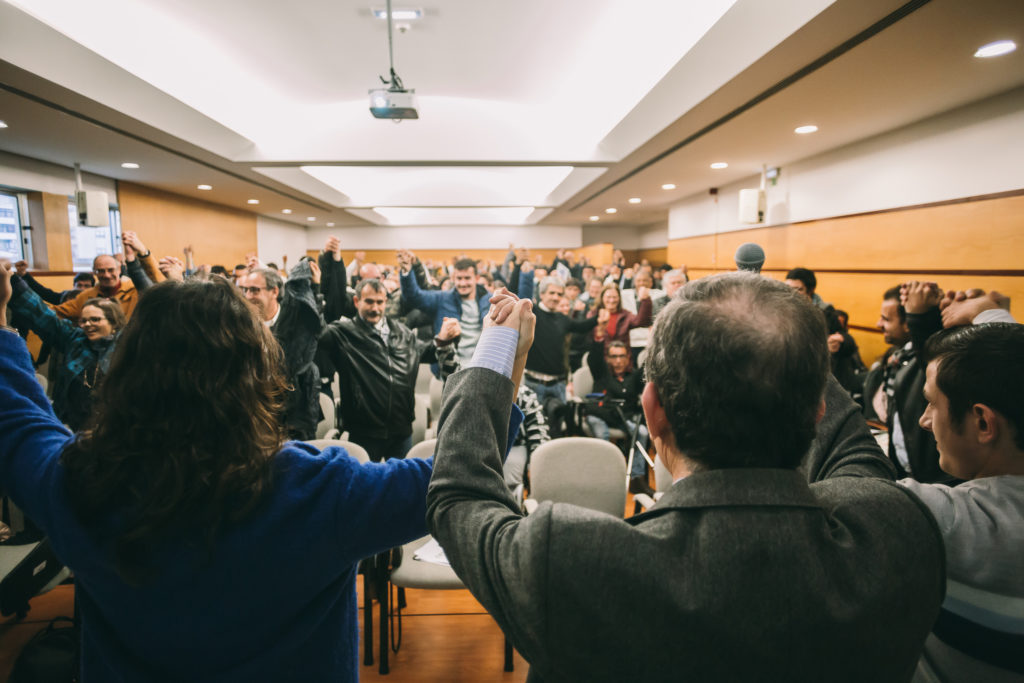


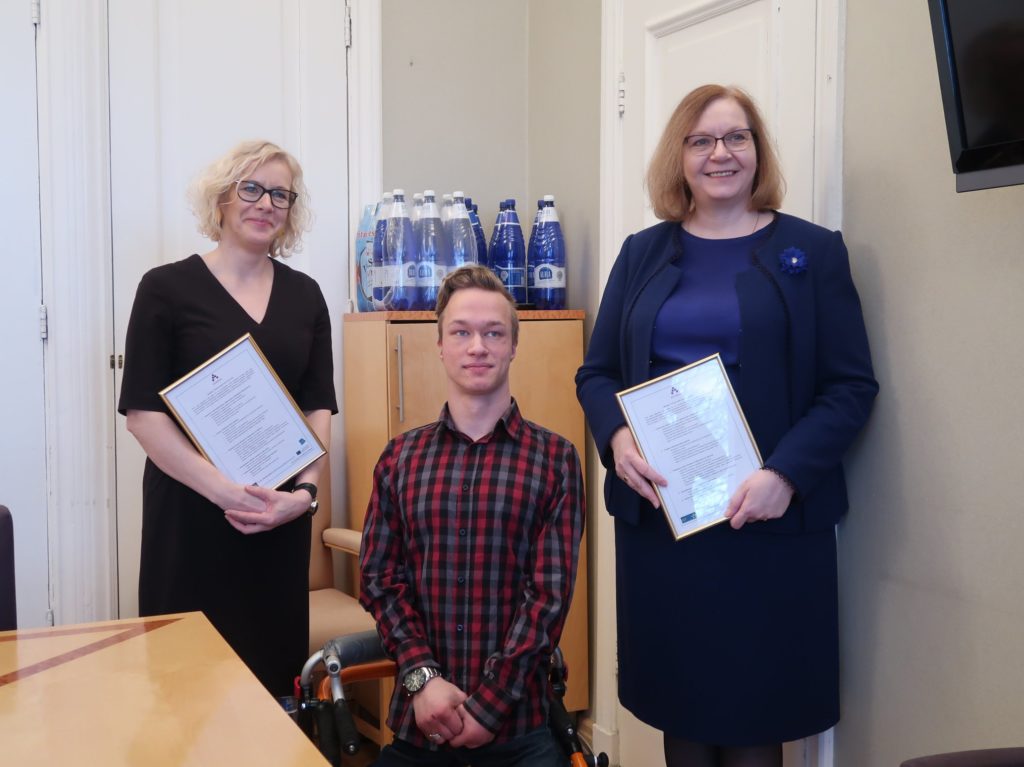
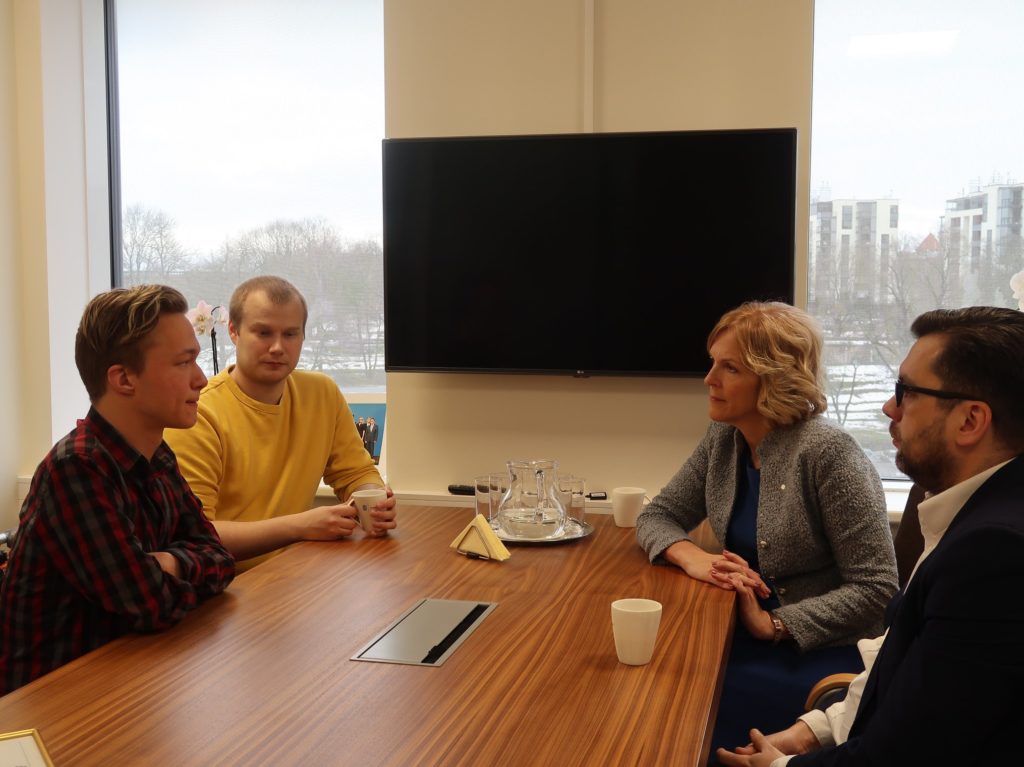

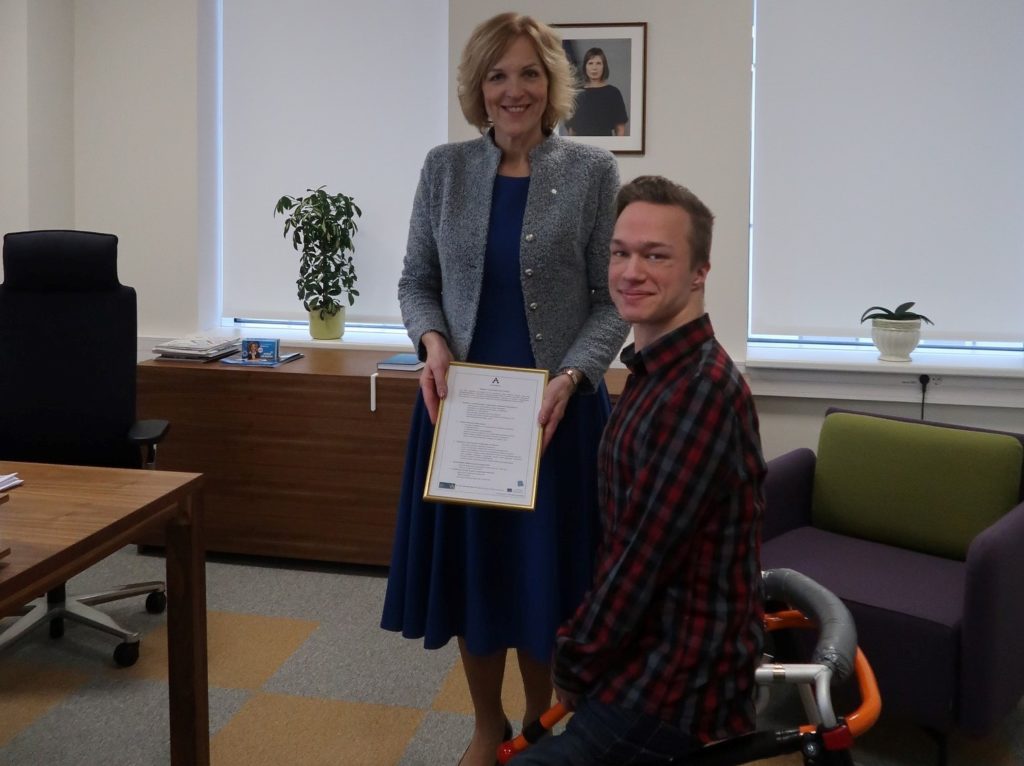
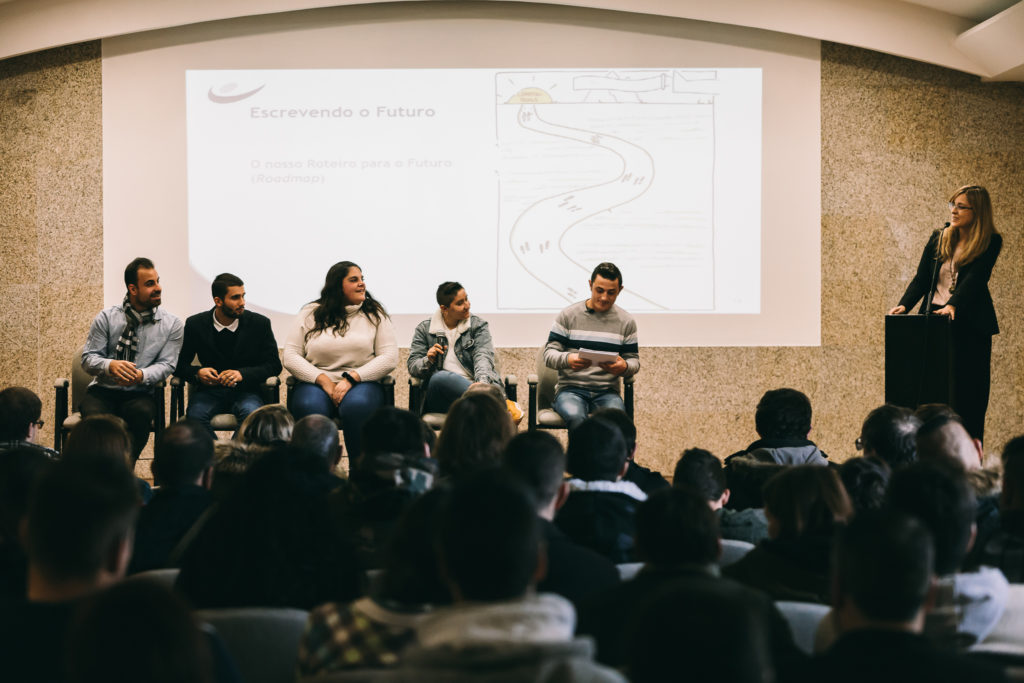
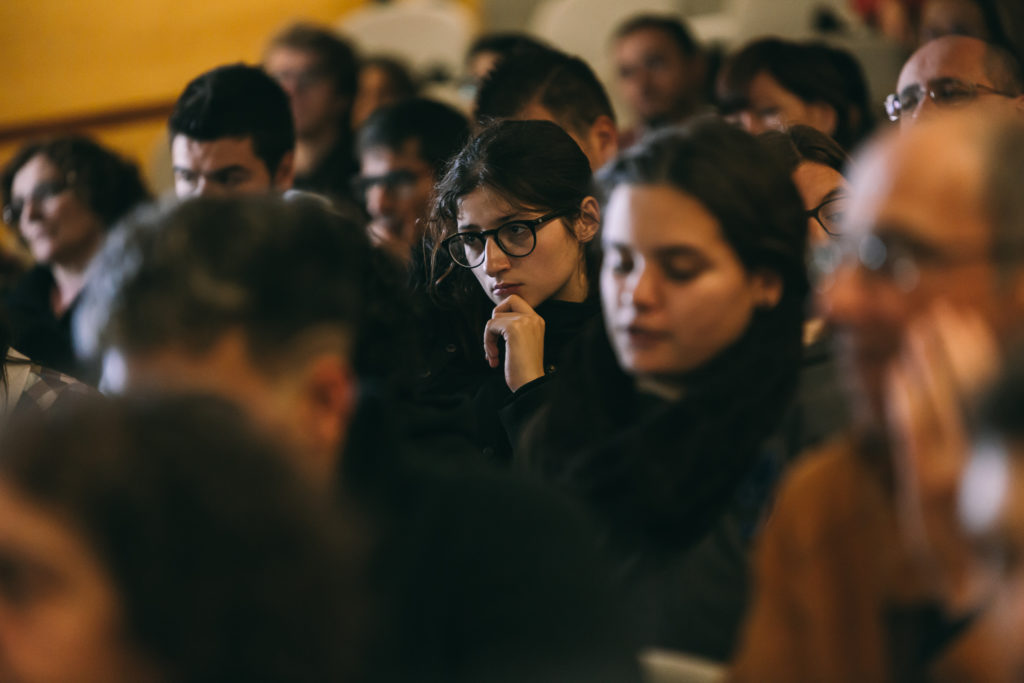
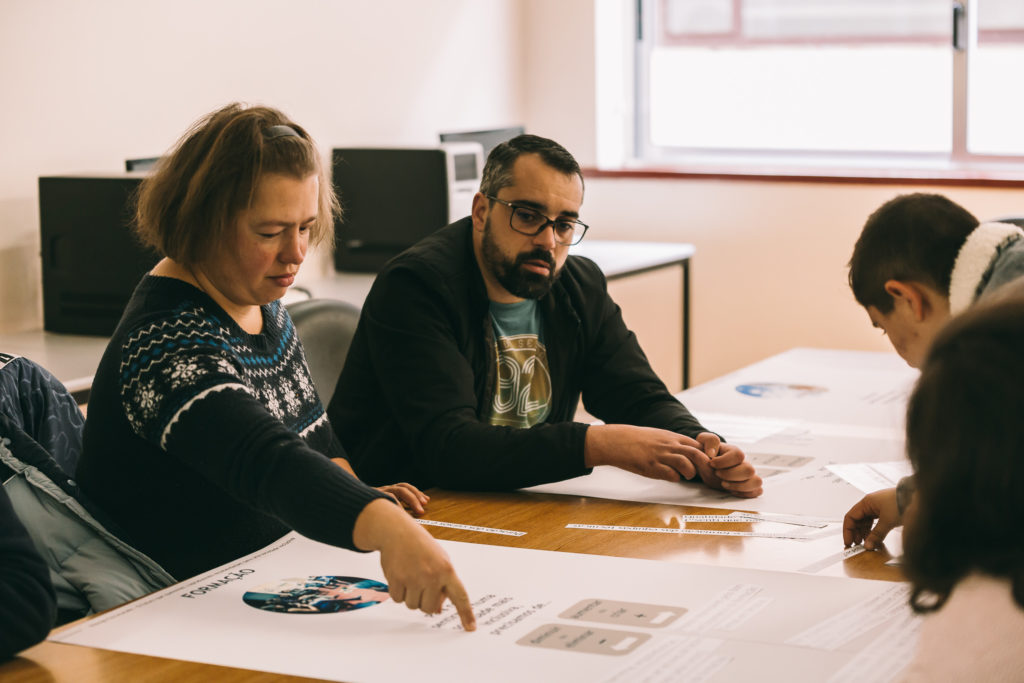
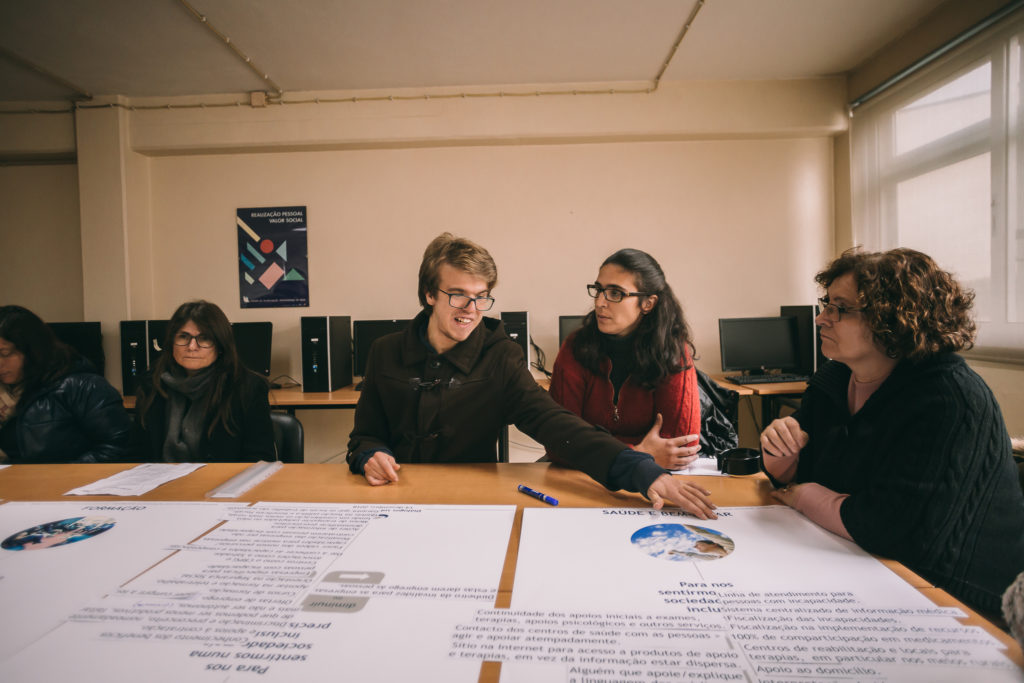
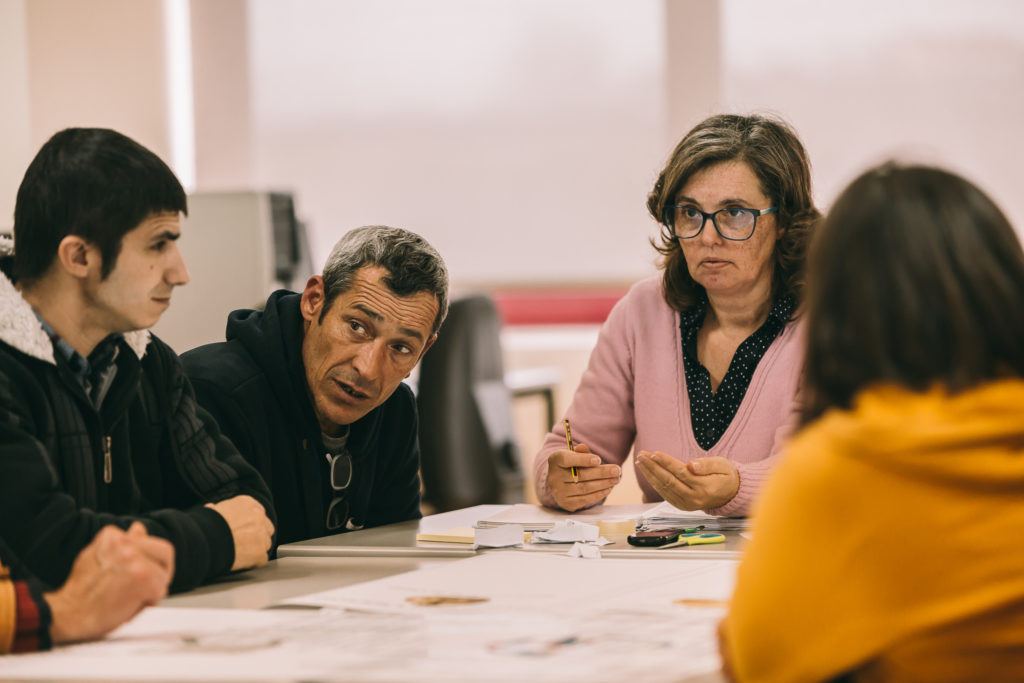
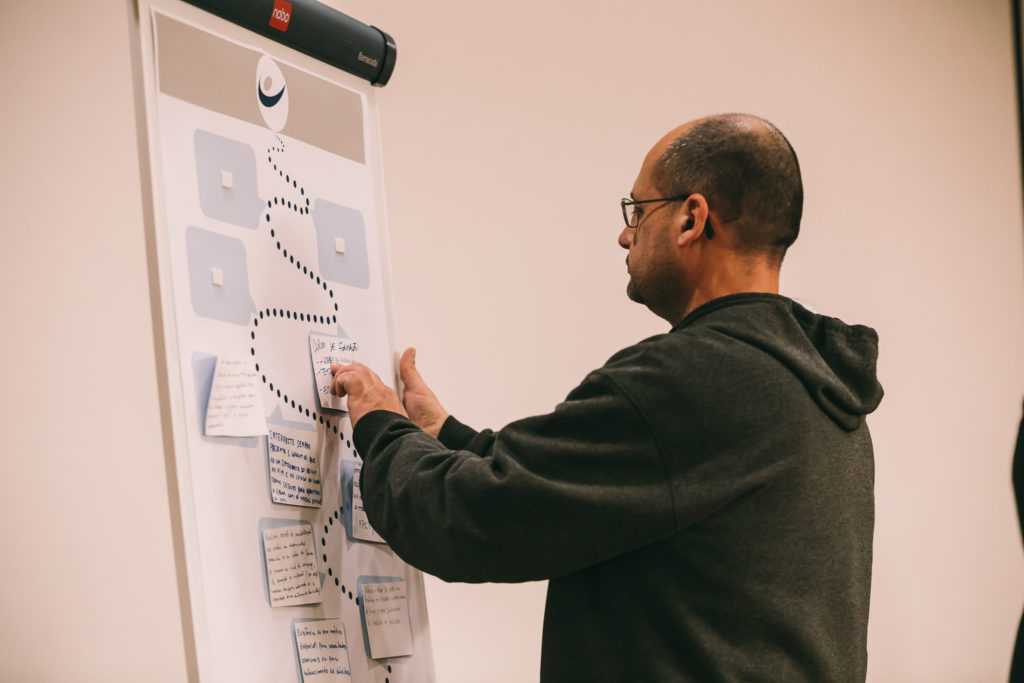
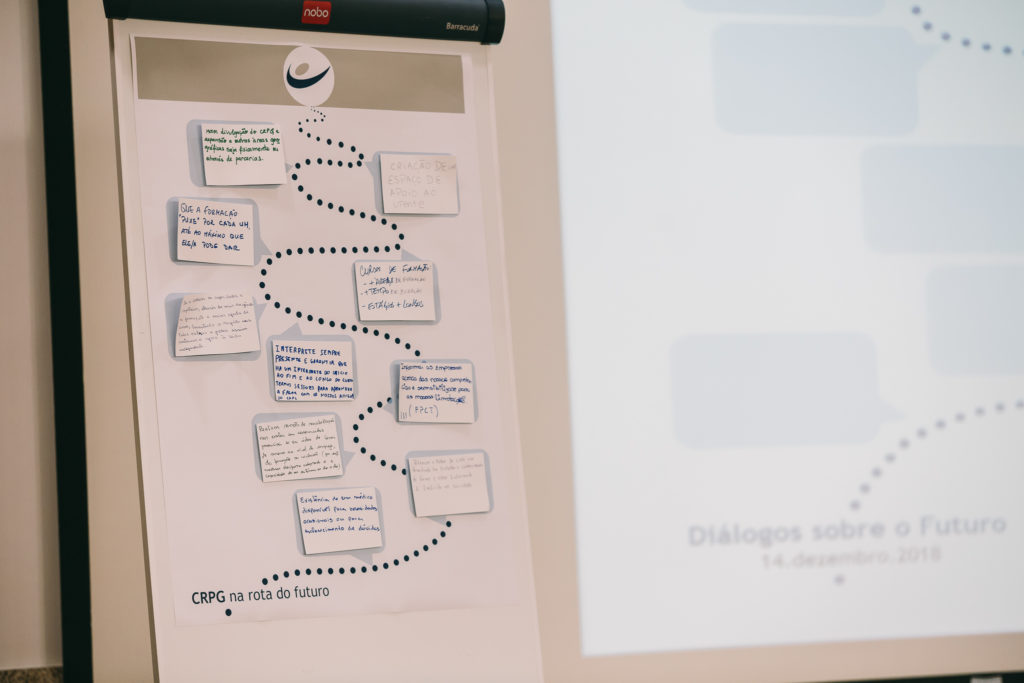
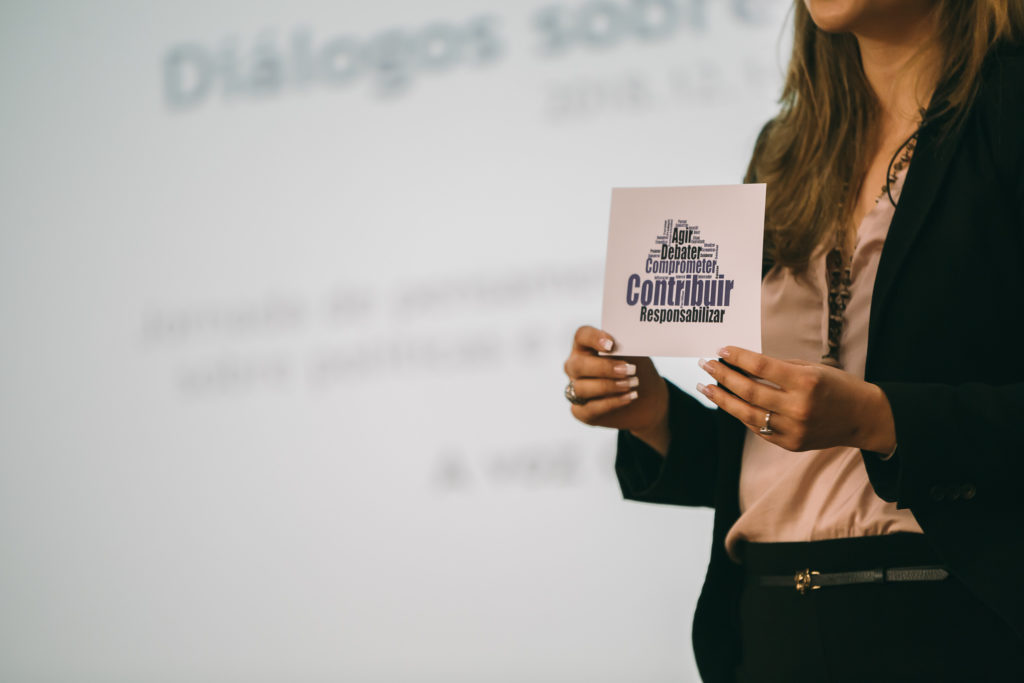
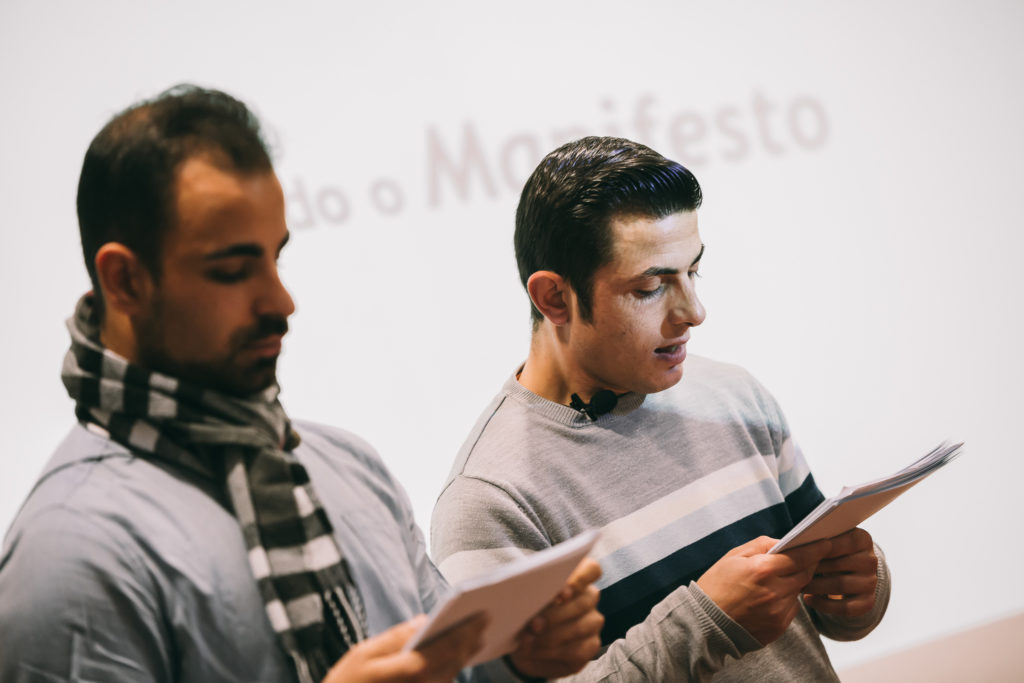

 This website received support from the EPR framework partnership agreement with the European Commission, DG Employment, Social Affairs and Inclusion for 2018-2022 from the EU Programme for Employment and Social Innovation (EaSI). For further information please consult:
This website received support from the EPR framework partnership agreement with the European Commission, DG Employment, Social Affairs and Inclusion for 2018-2022 from the EU Programme for Employment and Social Innovation (EaSI). For further information please consult: